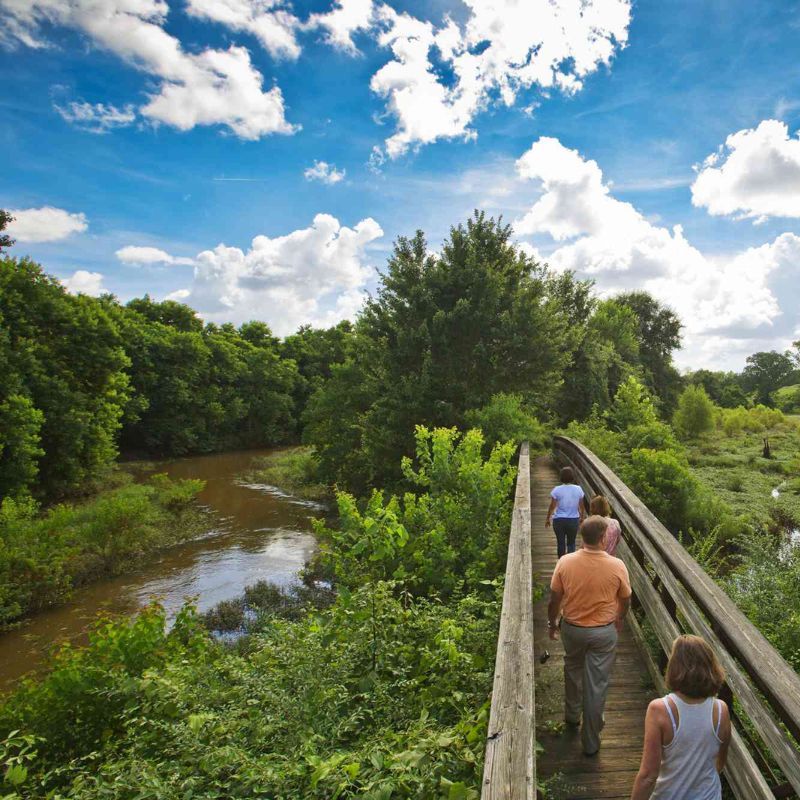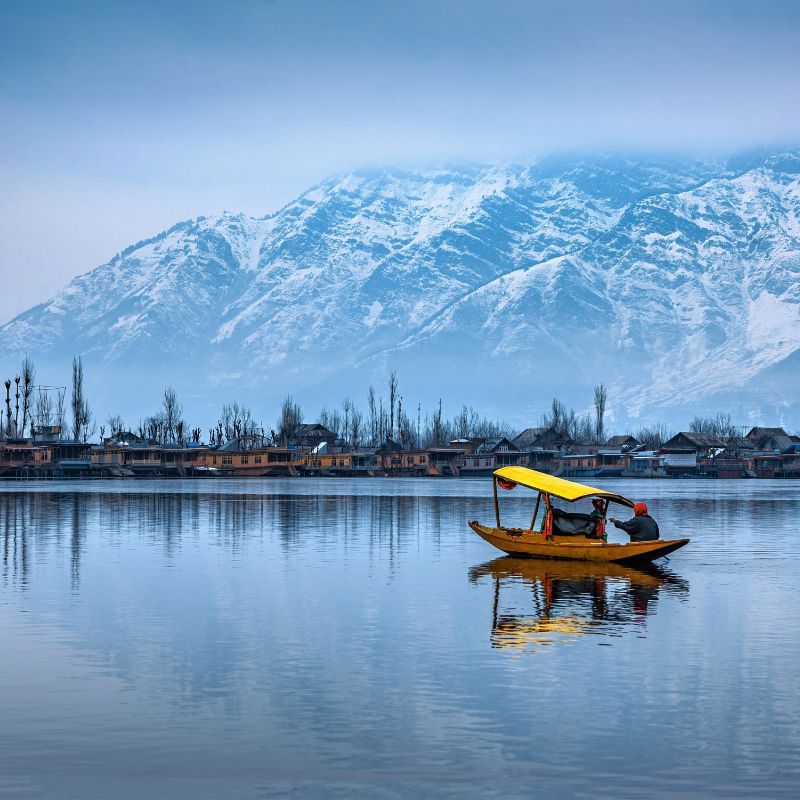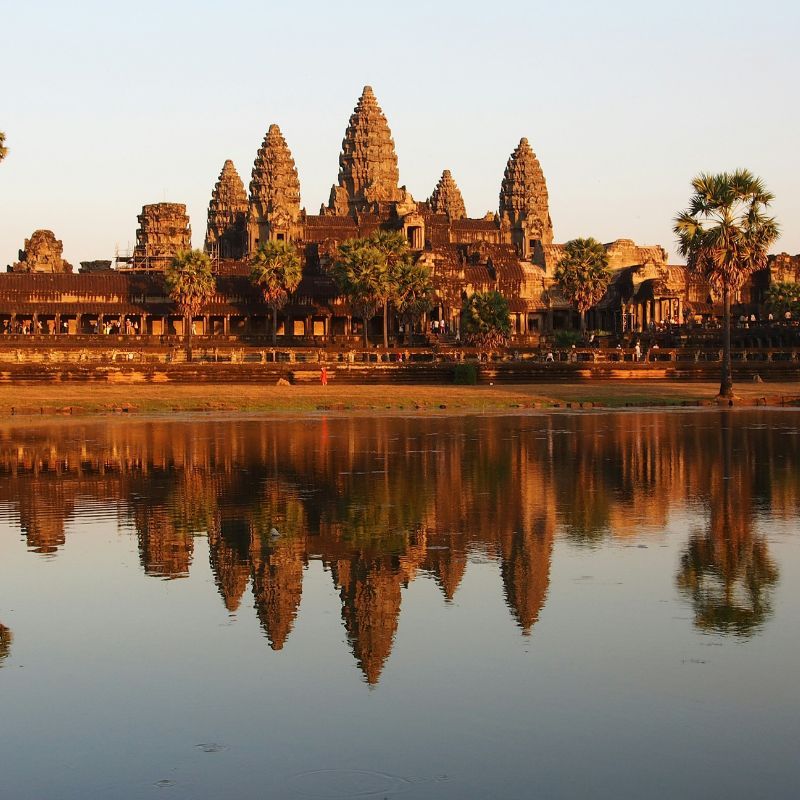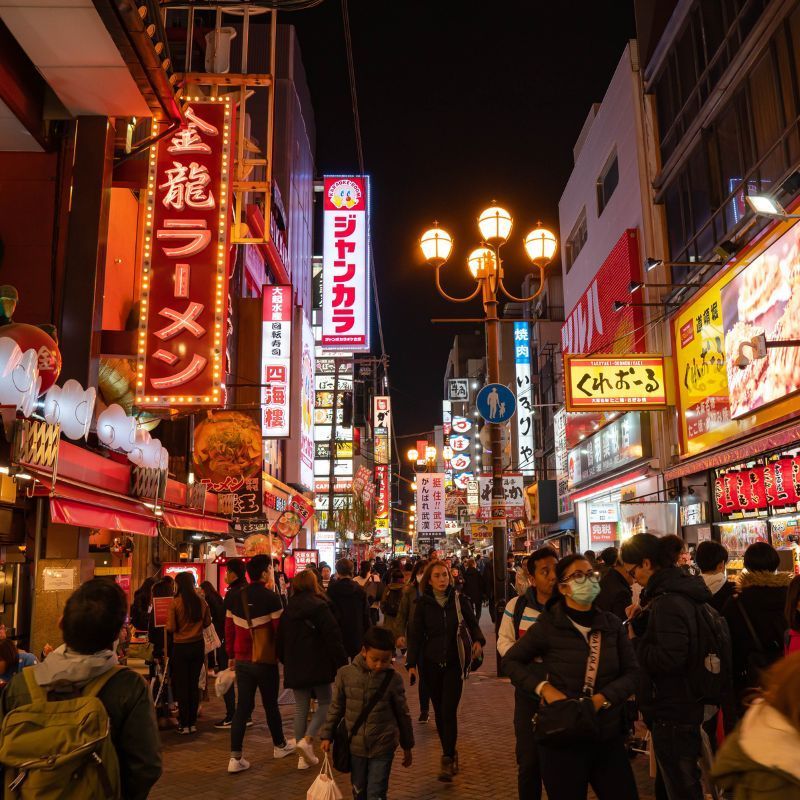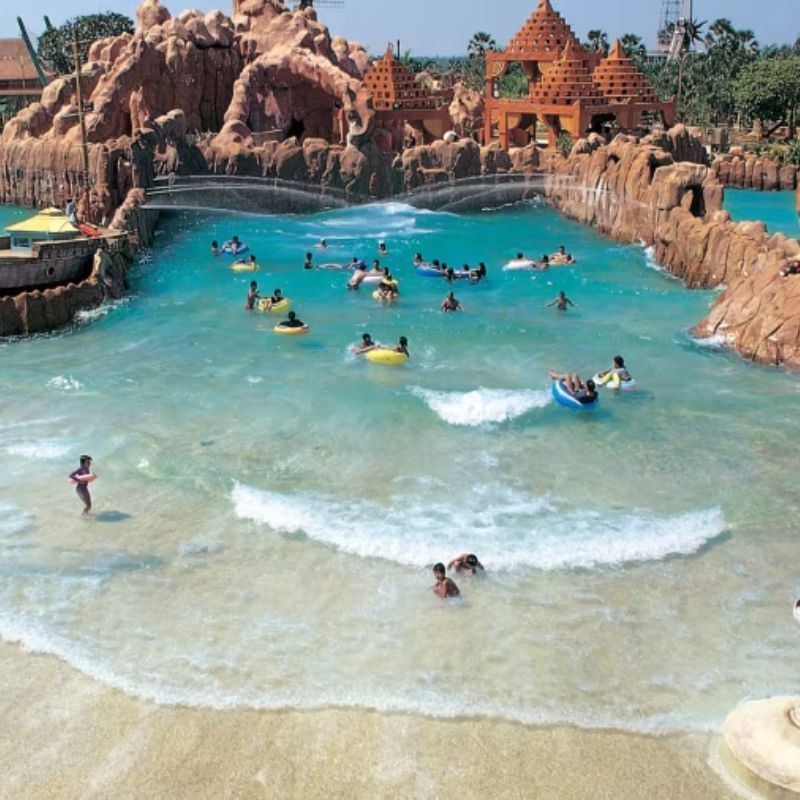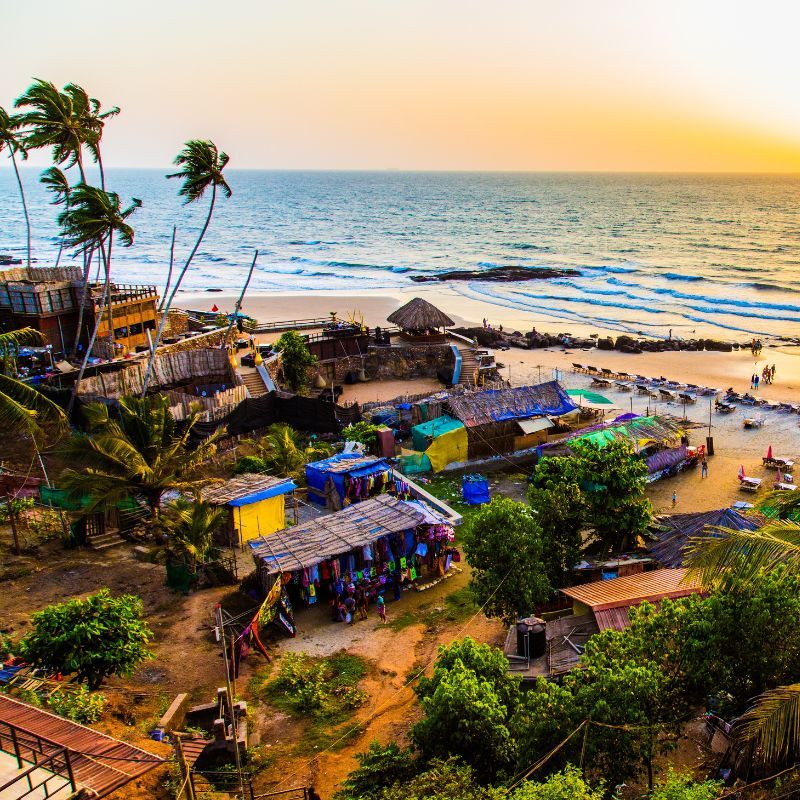
If it seemed crazy to travel across continents on the off chance of glimpsing a total solar eclipse in the last week of 2020, well, it had been a crazy year. But when our contributor made it to his tented camp in the Chilean Lake District, it seems the stars were, finally, aligned. Text by John Bowe; photos by Christobal Palma
The forecast couldn’t have been gloomier. December 12: rain. December 13: rain. December 14, the day of the solar eclipse I’d travelled 8,851 kilometres to see: more rain. I’d flown on the 11th, mid-pandemic, sitting masked up on a tense flight from New York to Santiago, then on to Temuco, in southern Chile. Of course, I had registered the dour weather predictions before boarding, but after nine months of house bondage, I didn’t care. The idea of perfect conditions or a perfect experience had long since fallen off the menu.

Throughout history, eclipses have been interpreted as cosmic, spiritual resets. Folklore from Scandinavia and Asia to the Americas depicts these events as a battle between light and dark, with the moon (or other malevolent actors like wolves, bears, frogs, or dragons) seeking to depose the diurnal status quo. Though the forces of light invariably triumph, the terror brought on by the sudden, surreal inversion of time, space, and the temperature was typically interpreted by soothsayers and medicine men as a warning: Pay heed. Take nothing for granted.
That said, my ambitions for the trip were far from profound. At the end of a long and brutal year, I wanted to gauge what I’d lost in lockdown. The pandemic had disrupted—obliterated, even—the daily flow of stimuli by which I apprehended the world, and by which I understood myself in relation to it. How bad a hit had my senses taken? Had the experience done away with my capacity for wonder?
On the two-hour trip from the airport to a glampsite in southern Chile’s Lake District set up especially for the eclipse, my driver, peering out at dairy and berry farms through his rain-streaked windshield, fretted about the weather. Temperatures had been running some 11° C below the seasonal average, he said, with nighttime lows between 5° C and 10° C. We came within sight of Lake Villarrica, a popular tourist destination. The surface of the lake, roused to a salt-and-pepper stipple by the rain, was devoid of sailboats or swimmers. So much for the high season.
We came to Pucón, a resort town in the foothills of the Andes known as a hub for skiing, trekking, biking, and fishing. The humdrum landscape of commercial farms gave way to smallholdings, wood cabins, and country houses with corrugated tin roofs. Two snow-topped volcanoes, Rucapillán and Lanín, towered in the distance. Flocks of sheep, white and brown, grazed with choreographed precision, each one facing the same direction, amid ridges and valleys dense with evergreens and laced in mist.
When the car finally stopped at our destination, I was taken aback. Amid my tense travel preparations (face shield or goggles? One mask or two?), I hadn’t given much thought to the accommodations. If anything, the word ‘camping’ had conjured a basic, smallscale setup. But this site on the banks of the Río Liucura, a fly fisherman’s dream brimming over from the recent rain, felt more like a community. The camp was the work of Raul Buenaventura, founder and CEO of VM Elite, an adventure broker that caters to high-end clients eager to explore Patagonia, the Atacama Desert, and far-flung parts of Peru and Bolivia. It consists of a dozen or so large, round tents about 45 metres apart from one another. From the woods surrounding the encampment, I could hear the distinctive chorus of black-throated huet-huet birds. The trees were covered with epiphytes, moss, and lichen, some fronds as thick as pasta. Fragrant smoke from wood fires drifted our way, mixed with the scent of pine and the humid cold.

Eclipse-spotting is rapidly gaining in popularity, and Buenaventura had set up a successful camp for a July 2019 eclipse some 1,000 kilometres north of Pucón, near the city of La Serena. I’d spent the two weeks preceding my trip frantically messaging with him as the weather and COVID-19 conditions shifted on what seemed like an hourly basis. He’d seemed, understandably, at the end of his rope.
The eclipse would be observable in its totality within—and only within—a 90-kilometre band running through Chile and Argentina, with visibility petering out somewhere in the South Atlantic. Given the rain, the need for social distancing, and travel restrictions that changed from town to town, province to province, and country to country, the logistics of hosting a once-in-a-lifetime eclipse-viewing event seemed taxing, to say the least. But in person, Buenaventura, a boyish 40-something in preppy-chic trekking gear, seemed enthusiastic—if somewhat sleep-deprived. “After all the closures this year, I really had no expectations,” he said. “My main motivation was just to be able to see the eclipse and help other
people see it. I knew it was going to be difficult.”

As Buenaventura led me around, he explained that the tents were made by Bell, a British company, and had the distinct advantage of being able to support electrical circuitry. “You can get heaters in there, AC, bathrooms, whatever you need.” As we arrived at my tent, I noted only the warmth and the plush-looking bed. At that moment, nothing else mattered.
At mealtimes over the next two days, I met the 25 or so other guests who’d braved the weather, travel restrictions, and dubious odds of actually seeing the eclipse. A chef served up hearty plates of lamb and beef and fresh-baked bread, which we ate outside on a deck overlooking the river. I learned what the
eclipse meant for my fellow campers, and what had motivated them to come. A 30-year-old man from Santiago said he’d heard that during eclipses, flower petals close, fish stop swimming, and trees make curved shadows. Another man explained that, as the source of all life, the sun is basically God. Therefore, a total eclipse is the only chance we get to look directly at the face of God.
I had my own idea of what the event might mean. In 1979, as a stoned 14-year-old, I’d seen an eclipse in a shopping mall parking lot in Minot, North Dakota. My oldest friend, David, and his father were joining a group of amateur scientists on a Science Museum of Minnesota expedition and invited me along. We arrived at dawn after travelling all night by chartered bus, and huddled on a bleak stretch of tarmac eating sandwiches and watching the scientists unpack preternatural quantities of gear—telescopes, spectrometers, cameras, and more.

in the distance.
Sometime around mid-morning, the wind stilled. The birds fell silent. Darkness came over us like a steamroller. The current of warmth flowing from sun to skin ceased as the familiar firmaments of earth, sky, and the sun gave way to purple-tinged shadow bands strobing across the plain. We gawked, spellbound for a total of two minutes and 49 seconds—an adequate amount of time, we quickly realised, to be immersed in the infinite.
On the bus ride home, my friend’s father, Dale, a former college football star, offered some advice. The amateur scientists had spent the eclipse hunched over their viewfinders, measuring, recording; looking at their devices and not at the phenomenon we’d come to observe. We’d stood out, in fact, for being the only spectators looking on with naked eyes (this was the 1970s, after all). “I think it’s good sometimes,” Dale said, “to just take things in instead of trying to capture and preserve them.”
In the intervening years, his words had come back to me again and again: learn to resist the perpetual urge to interpret and analyse, to manufacture opinion and create meaning. Learn to be in the moment, of course. But also, learn to observe.
Buenaventura has been coming to the Lake District since childhood, on biking, trekking, and whitewater rafting trips. He seemed to know every trail and river bend. The day before the eclipse, he and his younger brother, Nicholas, took me to visit an old friend: Irma Epulef, a machi, or traditional healer, and a member of the Mapuche Indigenous group. “I think she’ll have an interesting perspective on the eclipse,” he said.
We drove half an hour to a hamlet named Curarrehue, some 16 kilometres from the border with Argentina. Pulling off the highway, we found Epulef wearing a ceremonial poncho, standing next to her ruka—a traditional sweat lodge with mud walls and a high, conical wooden roof. She invited us inside, and we sat down on benches lining the walls. A smoky wood stove stood in the centre of the earthen floor.

community.
Epulef began to speak. “When I was young,” she said, “children and pregnant women were prohibited from viewing eclipses.” The conflict between light and darkness was thought to be too violent. We talked about the meaning of the terms ‘light’ and ‘darkness’. “Darkness is when we can’t advance in anything,” she said. “Like this whole last year.”
If 2020 had been an annus horribilis for all of us, it had been especially horrible in Chile. In addition to the pandemic, the year had seen a continuation of 2019’s political upheaval, with protests across the nation, both peaceful and violent, and episodes of police brutality that made news around the world.
Epulef picked up a handmade drum marked with quadrants representing earth, wind, fire, and water. When the elements fall out of balance, she explained, ñuki mapo, or Mother Earth, is displeased. “Humans have pushed the earth too far. We’ve betrayed the earth. We’ve betrayed the soil.” Noting that the previous year, the quila —a type of bamboo found in the region—hadn’t flowered, she shrugged. “For us, these natural events are like news announcements.” As we took turns fanning the fire, Epulef told us she and other Mapuche would be praying hard in the coming days. “We hope that humanity can learn humility because we need a change. Let’s hope this eclipse brings us back in a positive direction.”
Towards the end of our visit, the sky had cleared, and as we drove back to camp, the area’s lush beauty was lit up by golden sunlight. By night, however, the rain returned, and fell without respite, pelting my canvas roof right through to the next morning, when the eclipse was due to take place. I woke up to puddles outside my tent flap. At the breakfast table, no one had much to say. We’d felt adventurous,
hopeful, brave. But now, in the cold and wet, we mostly felt foolish.
An hour and a half before the eclipse, Buenaventura invited everyone at the camp to gather on the deck outside the kitchen to talk as a group about our reasons for coming. The rain beat down so hard on the rubberised tarp over our heads, we had to raise our voices to make ourselves heard.
As we went around the circle, one man explained, “My life is always planned, always organised. Everything is very cuadradito,” or chopped into little squares. “I wanted to let go of my thinking, my plans, and remember the rhythms of nature.” Heads around the circle seemed to nod. Some of the speakers made more sense than others. The word ‘alignment’ came up a lot, as did the cosmos, and life forces. Eclipses, we all seemed to agree, are a metaphor for the wonder of life, a chance to open ourselves to awe.

I was terrified to offer my opinion, especially in my imperfect Spanish. But when my turn came, I related my previous eclipse experience, explaining that I wanted to gauge whether I had retained—throughout the intervening decades, and especially during the pandemic—the ability to adhere to my own adopted creed. Was I still able to observe nature with my full capacities, undistracted by adult responsibilities? “I think it’s a real test,” I said. Can modern people spend an entire two minutes (the length of time this eclipse was to last) without taking a picture or checking our phone—without needing a device to mediate the distance between ourselves and the world?
A self-described eclipse-hunter named Sebastian Gonzales from Viña del Mar offered to lead a meditation. After guiding us through a few breathing exercises, he asked the group to imagine planting roots from our feet into the soil. “Feel the alignment from the centre of the earth through us and upward to the Moon, the Sun, and the Milky Way beyond. Try to connect with this special time,” he urged, “this cosmic time when everything lines up and the energy flows.”
The meditation ended, and for a beat or two, I felt adrift. There was nothing to do, no reason to continue organising the day around an eclipse we weren’t going to see. The rain had stopped, but the sky was implacably overcast. As I looked around for someone to commiserate with, the light level began to dim, then dim some more. Totally unlike the gradual dimming of dusk, this felt far more abrupt, as if the lights were going down in a theatre. (I’d realise later that in one sense, I’d succeeded in my aim of having no expectations. I’d come a quarter of the way around the world to see an eclipse, and then was surprised when it happened.)
Then, from a nearby meadow, I heard a shout. “El anillo! El anillo!” (“The ring! The ring!”). Some guests had set up cameras under umbrellas, on the off chance the eclipse might still become visible. I ran over and joined their skyward gaze to where a patch of sky, not blue so much as absent of dark grey, began to open. I found it hard to trust what I was seeing or feel remotely optimistic as the clouds parted like fleece, one minute fleeting, the next minute darkening again. Yes, no, yes, no; light, dark, and then, suddenly, a ring. The corona. Flickering but whole, the circle held and shone. The crowd erupted in hesitant whoops.
“Mira mira mira mira!” (“Look look look look!”) someone cried. Cameras snapped wildly as the raucous call of bandurrias, or black-faced ibises, known for screeching just before dawn, echoed from the hills around us. The temperature dropped, and I could feel my senses quicken. Everyone around me seemed to shudder in unison. The surrounding slopes were as blanketed by clouds as they’d been one, three, 15 minutes earlier. The sun above had formed a triumphant if ethereal, halo. It felt like the opposite of terror. Here was wonder and hope. We had been desperate for a jolt. If the eclipse meant the end of the world as we knew it, it felt like wonderful news.

seen from the VM Elite campsite.
When the two minutes and nine seconds of the totality passed, applause broke out. We’d later learn that
virtually no one else in Chile had seen the eclipse. Potential spectators based in Pucón had boarded buses to rush to the coast, about two and half hours away, hoping for better weather. No luck. A group of astronomers had invited us to join them at a mountain pass near the Argentinean border. They’d seen nothing.
At our final meal that evening, I sat next to a Chilean émigré from Germany. She wore the relieved, happy expression shared by everyone around the table as she recounted her experience. “I think it was even better than if we’d had good weather,” she said. “Because we were just expecting nothing. And then suddenly, it was like, ‘Hellooo!’ And we didn’t even have to wear those silly goggles.”
Getting There
Air France flies from Delhi to Santiago via Paris. Air India and KLM offer connecting flights from Mumbai to Santiago. Latam Airlines has regular flights from Santiago to Temuco.
Stay
VM Elite’s Raul Buenaventura has spent two decades setting up bespoke experiences around South America, from heli-skiing in the Andes to surfing in the Pacific. He is working on an expedition to view
the upcoming solar eclipse in Antarctica on December 4. Tents from INR 1,09,432 per night, all-inclusive.
Related: Aysén In Chile’s Patagonia Is A Wild Wild Paradise For Nature Lovers


